Bellator rolls out Miracle Neo money laundering cards
![]() Bellator has revealed a series of debit cards of unknown origin to their MLM crypto investors.
Bellator has revealed a series of debit cards of unknown origin to their MLM crypto investors.
In Bellator CEO and owner Micah Theard’s own words, the idea behind the cards is to allow investors to
[31:35] creat[e] a virtual bank account with a crypto friendly bank. And in that account you can buy and sell crypto without being punished for it.
That account is your account. So when you wire or move money to that account, you’re basically sending it from your local bank to your online bank but it’s to your self.
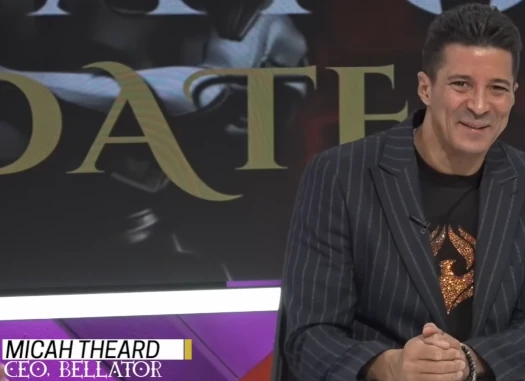
Now the card is independent from that account. The card itself um, when the crypto comes and you move it to that card, you’ve never really taken money into your name. You’re basically moving crypto to cash to a card, so you never actually own it in your name.
But the card is there and you can use it by using it anywhere they accept MasterCard. Or you can go to an ATM and you can take cash if you need cash for what you’re doing.
Needless to say allowing clients to shuffle money around globally with no KYC is pretty much violates laws in every country with a regulated financial system.
Furthermore the practice of money laundering, in addition to being illegal, most certainly violates MasterCard’s merchant terms of service.
And all of this is on top of Bellator’s unregistered crypto node investment scheme. To that end, just in case there was any question over what Bellator’s cards are intended to be used for;
[34:34] You’re earning everyday on your nodes and if you want to spend some of that money, then get yourself the card.
Now you can have dinner on the node, you can uh, get a massage on the node, you can maybe take a small trip on the node. And eventually the node can be paying for your entire life as Miracle Pay continues to grow.
Instead of selling cards through Bellator, Miracle Cash & More, or any existing related entities that might trigger regulatory red flags, Bellator’s new cards are provided through “Miracle Neo”.
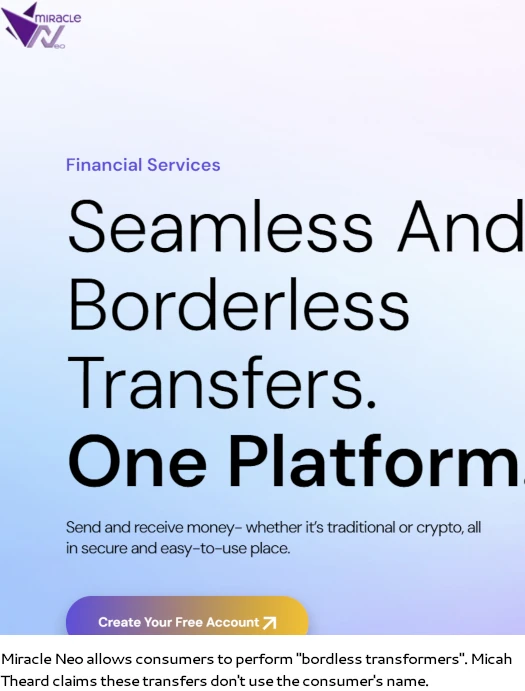
Miracle Neo has been set up on the domain “miracleneo.com”, recently registered on April 9th, 2025.
Ironically, despite Theard’s comments about “moving money around without using your name”, on its website Miracle Neo claims it
works with regulated financial institutions and follows strict KYC (Know Your Customer) and AML (Anti-Money Laundering) standards.
Bellator’s Miracle Neo cards, provided through an unknown processor, cost between $99 to $550.
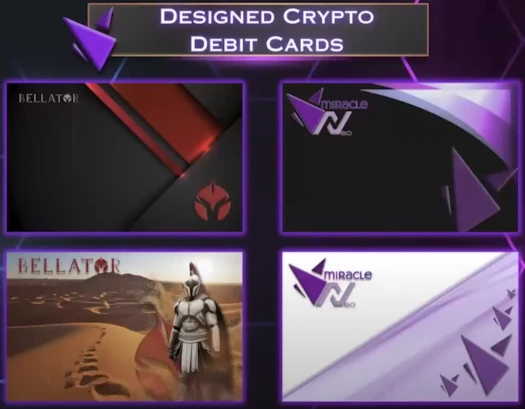
Theard claims Bellator is looking into offering more expensive cards “made out of real gold and silver and diamonds”.
It’s assumed the more expensive cards allow investors to launder more funds but this isn’t clarified.
On the MLM side of things, Bellator affiliates earn commissions on the sale of cards down ten levels of recruitment (unilevel):

- $99 card pays $22 on level 1 (personally recruited affiliates), 7% on level 2, 6% on level 3, $5 on level 4, 4% on level 5 and $3 on levels 6 and 7
- $450 card pays $75 on level 1, $24 on level 2, $20 on level 3, $17 on level 4, $14 on level 5 and $10 on levels 6 and 7
- $550 card pays $96 on level 1, $30 on level 2, $26 on level 3, $22 on level 4, $18 on level 5 and $14 on levels 6 and 7
A percentage of fees Bellator receives on card usage is also purportedly paid out across fifteen levels of recruitment.
Bellator’s node investment scheme is a continuation of crypto investment fraud Theard, a former OneCoin Ponzi promoter, and business partner Hakan Torehan started with CashFlow NFT in 2022.
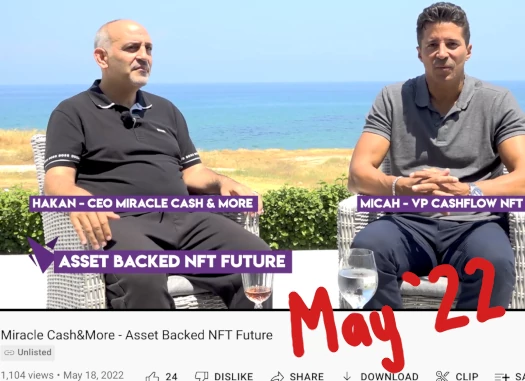
As of February 2025 Torehan, who has multiple arrests and a gaming fraud conviction under his belt, is “facing charges of laundering the proceeds of crime and operating illegal gambling websites“.

[Torehan] stood in the dock alongside two others, with Tuesday’s court date the latest in a series of events in recent weeks which have seen his football and cryptocurrency empire begin to unravel in parts.
After CashFlow NFT’s initial real-estate NFT Ponzi flopped, Theard continued on with a Boogie Gopher NFT spinoff.
After Boogie Gopher NFTs there was the MetaTerra, a shell company CashFlow NFT was supposed to legalize and base itself out of the US with.
MetaTerra has since been abandoned. The SEC-registered company is now delinquent in financial filings by over a year.
After MetaTerra we had BG Lifestyle Club, an excuse to steal more money under the ruse of a baloney $100 billion valuation. BG Lifestyle Club also introduced Phoenic tokens.
Every member starts with daily earnings of at least $1 in Phoenic tokens. Over time, this income can grow as the network expands and the token value increases.
After BG Lifestyle Club flopped a few months after launch, Bellator launched in or around February 2025.
Getting back to who Bellator has partnered with to provide money laundering services to consumers, last month Bellator announced it had entered into a Miracle Pay financial services partnership with Ingenico.
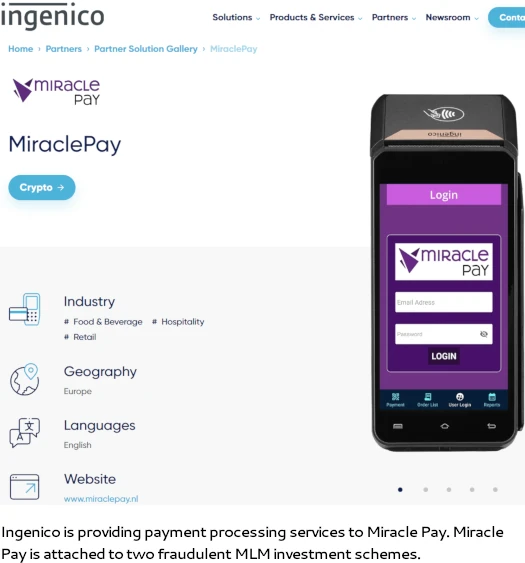
BehindMLM reached out to Ingenico to ask about them providing financial services to a company committing securities fraud. We didn’t receive a reply, but on or around May 15th Ingenico removed any mention of MiraclePay from its website.
In the “about us” section of MiraclePay’s website we find this;
Miracle technology group operates in the Netherlands, England, Turkey, and the TRNC.
Our crypto services are provided through a partnership with Bitdenex BV, which is registered (R179357) with De Nederlandsche Bank (DNB).
Bitdenex is a crypto exchange. It doesn’t appear to offer debit cards or access to MasterCard’s network.
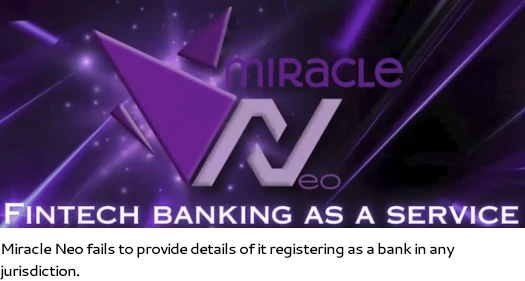
In violation of financial and consumer protection laws, Miracle Neo’s website fails to disclose who it partners with to provide financial services to consumers.


Is Miracle Pay Node part of same group ?Was given a pitch about earning $7000.00 Pa per node .
The node investment scheme started with CashFlow NFT and carried over into Bellator. “Miracle Pay Node” sounds like the same scheme with a different name.
Correct at the start of video presentation I see there is a Bellator logo,so you’re right on the money there.
I was invited to a zoom meeting about this. Thank God I came here to do some fact finding.
A friend of mine wants me to invest. But he always seems to find one scam after the next. And this sounds like the same thing. Poor guy. It seems he will always get scammed. I learnt my lesson since bitconnect.
This is a pass for me. They are not getting my hard earned money. Thanks behindthemlm.
I am collecting daily from my nodes and the company has found its footing within the fintech industry in the last 6 months.
The same detractors over the years while Miracle / Metaterra was building a software infrastructure have become very silent (but of course never retract because their income is views) because of the legitimacy of this company has become very obvious.
None of the self-anointed scams hunters will now liable themselves by publicly stating: Douglas Anderson owner of Wall Street Capital Partners and Ingenico a billon dollar 40yr + multinational company associated with Miracle / Metaterra are scammers or part of the scam.
1. Receiving worthless tokens through an unregistered (illegal) node investment scheme doesn’t justify fraud.
2. CashFlow NFT, Miracle *, Metaterra, Bellator and whatever the next name-change is, is pretty dead and has been for some time. Which is why you’re here.
3. Don’t know who Douglas Anderson and his companies are and don’t care. Legitimacy via association isn’t a thing.